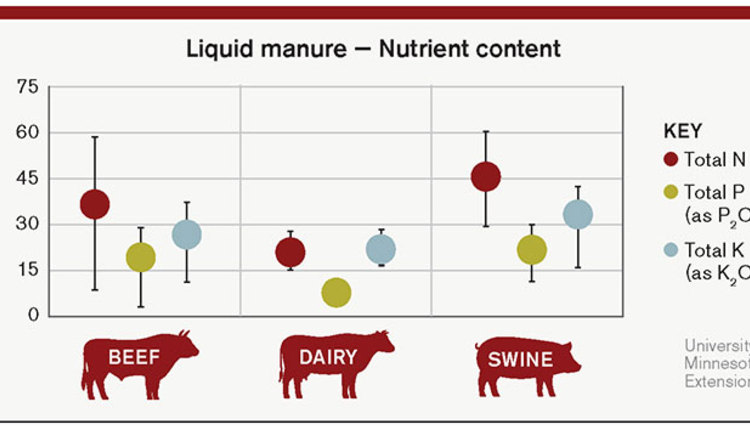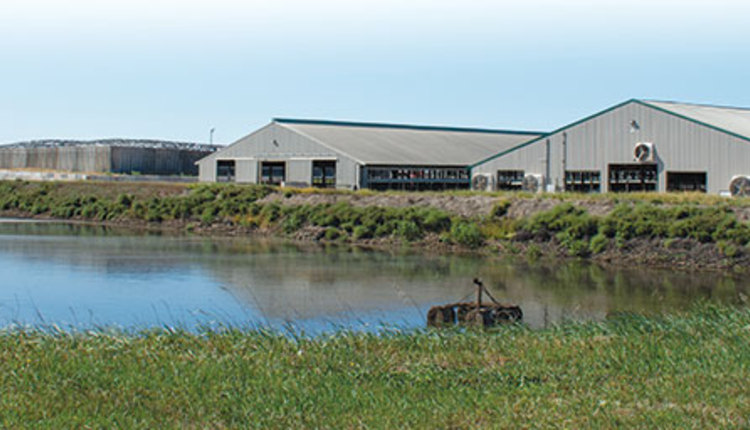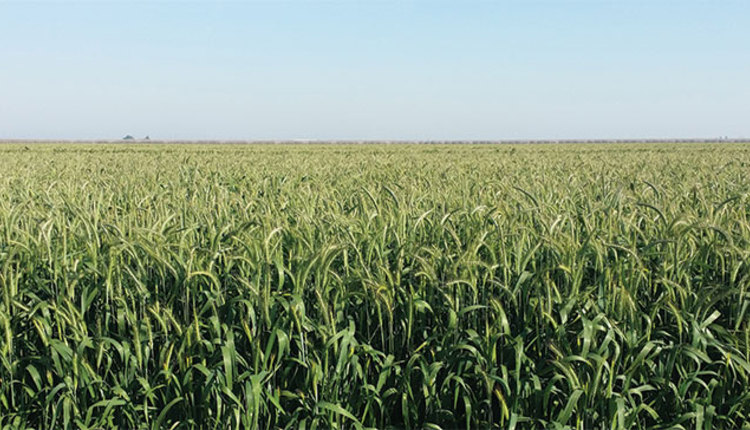The author is a livestock waste management specialist in the department of animal science at the University of California, Davis.

Consultants fill a void when expertise, but not a full-time employee, is needed. Selecting the right person for your farm takes effort. It pays to evaluate your nutrient management consultant needs whether you’re looking to hire a new person or already have someone on board.
Write the job description
What does this individual need to do for you and the farm? Make a list of essential responsibilities. These serve to build the job description and your employee evaluation metrics. Be as detailed as possible. Finish this sentence to define your needs: “I need to hire a consultant to . . .”
Here’s an example: “I need to hire a consultant to make manure application recommendations.” In this case, you’d want an individual with experience and training in nutrient management and crop production.
People skills are crucial for consultants so they are capable of having difficult conversations with farm employees (and you), whether it’s about sample collection, manure application, or record keeping requirements.
How will they interact with farm employees? Will this person train farm employees or work with manure applicators to ensure the right amount of manure is applied to each field? Will this person collect required manure and plant samples, or will they teach farm employees using an appropriate set of sampling protocols?
Alternatively, if you need to hire a consultant to complete your nutrient management compliance requirements, you would want an individual well versed in regulatory record keeping and paperwork. You may or may not use them to manage sample collection or applications.
Look at qualifications
What qualifications are an absolute must for a successful candidate?
This will (and should) vary depending on the tasks required. The following qualifications may be useful:
- Expertise in manure nutrient management and utilization
- Skill and certifications in crop management if required
- Knowledge in manure application systems for your species
- Understanding of nutritional additives and the potential effect of diet on manure management
- Competence in addressing regulatory compliance issues
- Knowledge of current regulatory requirements and potential changes
- Evidence of successful working relationship with regulatory agency staff
- Effective written and oral communication skills
- Demonstrate proficiency in completing tasks in a reasonable time frame
- Knowledge of nutrient flow in, on, and off a farm
- Awareness of strategies to improve whole farm balance
- Knowledge of current sustainability approaches and financial impact
- Other qualifications that fit the needs of your operation
You want to identify required and preferred qualifications and compare those qualifications to potential candidates or your current consultant.
Credentials or certifications
Does the consultant have technical experience, skill, and knowledge in the areas you are seeking assistance? Be sure to review credentials. Professional websites often have a place to check current licenses or certifications. Depending on the certification or license, there may be a place to check for complaints.
Often certified crop advisers and technical service providers need to complete continuing education to keep their certification current. You can check their certification status at on.hoards.com/findprofessionals.
You want confidence that the individual is well versed in soil, water, and nutrient management needs for your type of operation. It’s possible someone is well versed in growing strawberries or celery, for example, but doesn’t have actual experience with manure based nutrient management systems or growing the crops you grow.
Evaluate productivity
If someone has written Nutrient Management Plans before, ask for a copy of a plan or two and the associated annual reports. Logically, this would be a redacted copy. Make a conscientious effort to look through these documents and evaluate how effective they would be for your needs.
If the plan doesn’t work for you, decide if you need to keep looking for a different consultant or if your potential consultant is able to change their approach. Determine if short cuts were used or if site specific information was omitted from the plan.
Review references
Always use due diligence when checking references. Anyone can complete forms and submit them to a regulatory agency. However, you don’t want to hire just anyone. You want to hire someone who has a good track record and will represent your facility honestly, be responsible, and assist you with compliance issues. Check to see if your top candidate has a good rapport with the regulatory agency staff.
If someone says they have been doing nutrient management work for years in another county or state, find out with whom they worked. Call the individuals and determine if quality work was performed. Open-ended questions can provide much insight. You could ask:
- “Please share any possible red flags about their work.”
- “What suggestions do you have regarding criteria I should use to hire a consultant for my farm?”
- “How would you rate my candidate against those criteria?”
- “What could be improved in their reporting documents?”
Some staff may be willing to discuss a specific individual, but some agencies might prohibit this type of open discussion. The information is valuable to you, though, so it’s worth asking.
When checking references, most people are polite and respectful. Briefly explain the two or three most important responsibilities of your position. Specifically ask if they would hire this person to do the job. Identify what you need the individual to do and ask if they would recommend them. Inquire if there is anything you should watch carefully with this individual, or if there were surprise fees or costs associated with the project.
Evaluation metrics
Once a consultant is on board, you’ll want to schedule regular meetings to be sure a smooth exchange of information so they can do their job. Identify key metrics from the job description to evaluate quality and timeliness of work product. Your management team may have great input for these metrics.
Are there responsibilities the individual will need to grow into? If so, determine the path to take to get them further trained.
Think about the old saying, “If you don’t know where you’re going, any road can take you there.” Each question you use for the evaluation process should identify not just what the consultant did but should also include an analysis of the outcome. Sometimes people can do great work, but if it’s not what you requested, it doesn’t get you where you need to be.
Consider how much manure was applied, and over time, was less fertilizer used? Were improvements made to water management systems?
How much money, time, or resources have been saved with the Nutrient Management Plan? Has the consultant worked to help your facility make you money?
Were assignments finished in a timely fashion and done completely? In some states, regulatory due dates are all or nothing. An incomplete report is viewed the same as no report at all.
Were calculations based on assumptions or farm specific data? Did the individual need to take samples and provide chain of custody information? If so, were these done correctly and to the satisfaction of the regulatory agency?
Were calculations in reports transparent with clear assumptions identified? Are the calculations defensible, or will the methods and results trigger a red flag with your local regulatory agency?
It’s really important to understand the methods used to make all calculations for your facility. Software programs developed in one state or for one location may not be appropriate in another location. If the individual uses their own software for analyses, are the calculations done properly?
Did the individual explain information in reports prior to submitting them to the regulatory authority? If so, did you feel comfortable with your results and the ability to work with your consultant to make facility alterations if necessary?
You may want to make a call to your local regulatory staff individual to identify if the reports provided were acceptable and delivered in a professional manner. Although this may seem intimidating, it’s essential to have a working relationship with the regulatory agency staff.
Engage your team
Each consultant is part of your management team, and many consultants provide specific information. As the team manager, you drive the bus and need to be sure the right individuals interact and understand different aspects of the farm. As an example, if your nutrient adviser identifies that your operation is short on land and long on phosphorus or salt, you should include your nutritionist in those discussions to identify how dietary composition may be affecting your farm.
At the end of the day, the buck stops with the owner. You will need to stay up to date on regulatory requirements and determine if your consultant is doing their job. Also ensure the final product is acceptable to the appropriate authorities. The owner/operator of a facility is legally responsible for everything that happens on that farm. No matter who wrote the plan, they would be responsible if any manure mismanagement results in an environmental problem.
This article appeared in the November 2021 issue of Journal of Nutrient Management on pages 10 and 11.
Not a subscriber? Click to get the print magazine.






